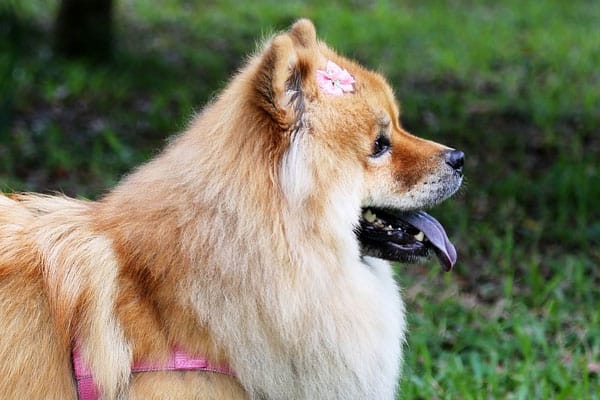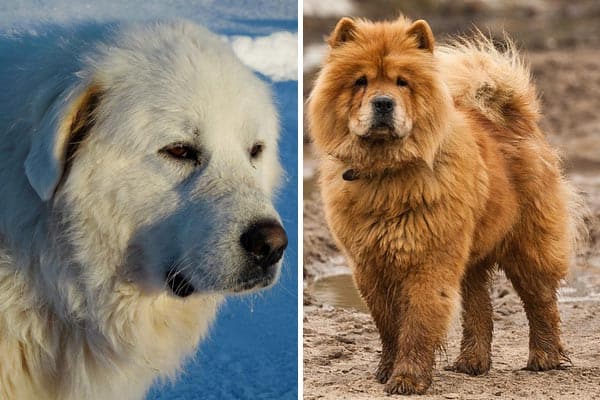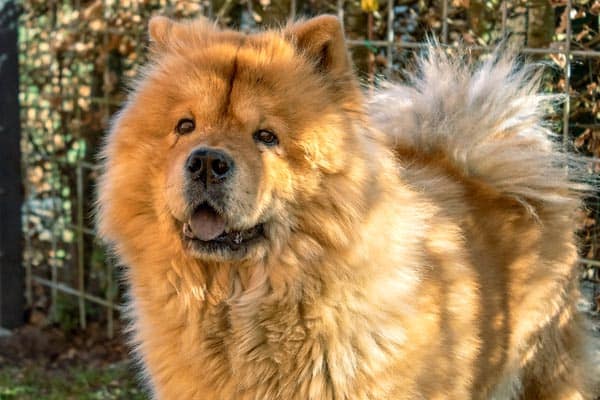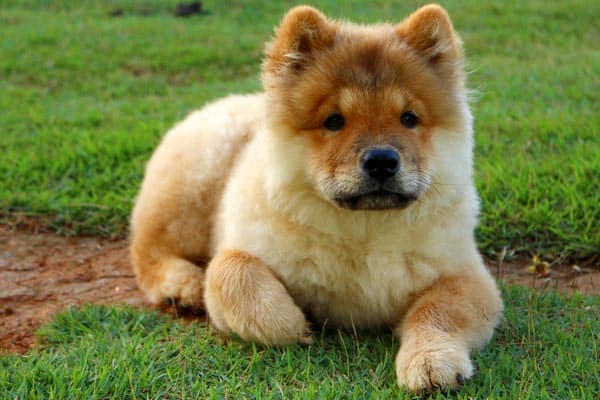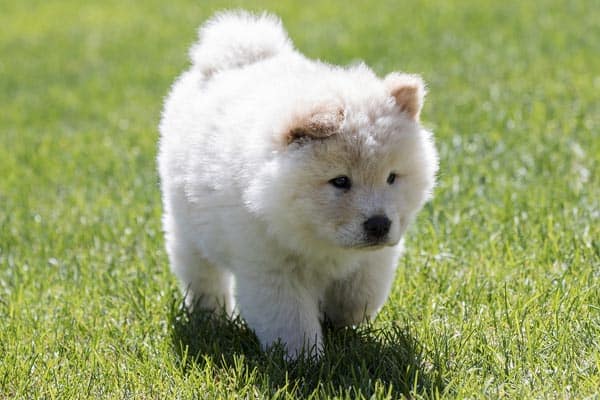Are Chow Chows Smart: Learn About the IQ of This Ancient Dog Breed
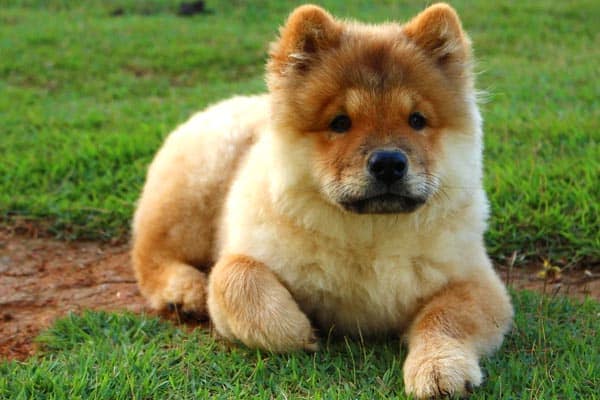
Take one look at a Chow Chow dog and you realize you are viewing a breed apart. These dogs are considered to be amongst the most ancient of all modern dog breeds.
In fact, no one is completely clear exactly when, where, or how the Chow Chow breed even got its start.
Chow Chows are definitely not for every dog owner and are usually not recommended for first-time or less experienced dog owners.
But this breed wouldn’t still be around today if Chow Chows didn’t make the best of pets and companion canines. In this article, learn about the Chow Chow dog’s intelligence.
Are Chow Chows Smart?
Chow Chows are definitely very smart. However, these unique dogs do not always choose to show off their canine intelligence.
This can make some people label the Chow Chow as stupid, lazy, stubborn, or other labels people often use when they don’t understand how to work with different types of canine intelligence.
Watch a Chow Chow Canine Training Session
In this informative short YouTube dog training video, you can watch an expert canine trainer working with Zog, a Chow Chow.
Zog came to training with a number of behavioral weaknesses, including failure to obey commands and seeming indifference to learning. By the end of the video, it is clear Zog was neither. He just needed a certain type of knowledgable training program.
Learn About the Chow Chow Breed History
According to the American Kennel Club (AKC), the Chow Chow dog breed may date all the way back to 206 B.C.
Even the origin of the Chow Chow breed name is uncertain. Some people think it comes from a word that means “edible” in Cantonese, while other people think it is a term taken from UK ship logs that simply means “etcetera.”
In either case, what is known is that Chow Chows belong to the working dog group called spitz dogs. These dogs are acclimated to work long hours outdoors in very harsh weather conditions.
They have an incredibly thick double-layer coat and an unstoppable work ethic…with the right motivation. And that is what often trips up Chow Chow owners, which is what we will talk about next.
What Makes the Chow Chow Dog So Unique?
Dogs, like people, can have different unique traits and different types of intelligence. This is often the result of people breeding dogs for specific types of jobs.
According to the respected journal BMC Genomics, the Chow Chow dog breed was likely bred to guard and protect people and livestock and to help with hunting.
Chow Chows also have some other very unusual and distinct features, including a blue-black tongue, an extra pair of teeth, and oddly straightened back legs (which gives this breed their strange formal walk).
While biologists are not completely clear what these other features signify in terms of reasons for breeding, they do make it clear the Chow Chow is a breed unlike any other in nearly every way.
So it stands to reason that the Chow Chow dog might have a type of canine intelligence that is unique as well.
Consider these other known unique traits associated with the Chow Chow breed as outlined by VetStreet:
- Chow Chows are friendly but typically bond more closely with just one person.
- Chow Chows appear large size-wise but much of that is their long coat.
- When not working, Chow Chows are rather lethargic and happy to live in small spaces.
- Aggression in Chow Chows is NOT a breed trait but the result of training issues.
- Chow Chows are house dogs – they do not fare well when housed outside.
- Chow Chows look cuddly but are not cuddlers in their temperament.
Understanding the Chow Chow Dog’s Particular Type of Canine Intelligence
The more you learn about what makes the Chow Chow dog breed so unlike many other modern companion canines, the more able you will be to play to your dog’s strengths.
Science Alert published a list of 79 purebred dog breeds and ranked them in order of intelligence. The Chow Chow was ranked as number 76 out of 79 dog breeds.
Does this mean the Chow Chow breed is stupid?
This certainly would be an easy assumption to make!
However, this often-quoted study was measuring a type of canine intelligence the Chow Chow breed does not have. The type of intelligence measured related to how quickly a dog could learn a new command and how reliably they could repeat that command.
This is only one type of canine intelligence. As Canine Campus explains, the other main types of dog intelligence include instinctive intelligence, adaptive intelligence, and working intelligence.
Let’s take a look at each one of these types and what their signifiers look like.
Instinctive intelligence
Instinctive intelligence refers to the type of work that a dog breed was originally bred and developed to do.
The term “instinctive” gives you a good clue about how this type of intelligence shows up in a dog.
Dogs with high instinctive intelligence are usually working dog breeds that have a very strong association with certain types of work.
For example, as Chow Tales explains, the Chow Chow has a very high instinctive intelligence in guarding, protecting, hunting and herding, pulling sleds and sleighs, and only much later for show dog purposes.
So these types of activities are the best examples of a Chow Chow dog’s instinctive intelligence strengths.
Adaptive intelligence
Adaptive intelligence is a type of intelligence that measures how readily a dog can learn from their environment or surroundings.
You can think of adaptive intelligence like a type of survival of the fittest intelligence of evolutionary intelligence.
Since the Chow Chow is an extraordinarily ancient dog breed, it is safe to say this breed scores high overall in adaptive intelligence.
Working intelligence
Finally, working intelligence is the type of intelligence that was being measured in the canine intelligence test mentioned earlier here.
Working intelligence refers to how readily a dog can learn from people. In other words, is your dog easy to train? Does your dog pick up new commands quickly and replicate them on command, so to speak?
Chow Chows do not typically score high in this type of intelligence. They are often labeled as stubborn, obstinate, or aggressive for this reason.
But a well-bred, well-socialized and well-trained Chow Chow will not display these negative qualities. And the key to achieving a well-socialized and trained Chow Chow is learning to work with your dog’s type of intelligence instead of against it.
The Best Ways to Train a Chow Chow
In this section, we review the most important fundamentals to keep in mind when you start training your Chow Chow.
Make use of the strongest motivators (rewards)
As this Chow Chow dog owner forum thread illustrates, the key to training a Chow Chow is to identify the strongest motivators (rewards) and use those as training rewards.
For some Chow Chows, treats will be the strongest motivators. As the owners point out, for other Chows it will be praise or pats or play.
The strongest motivator is going to be the thing that your Chow Chow wants more than anything else.
Use positive training methods only
The training method you use should be positive (rewards-based) and not negative (punishment-based). Punishment will only reinforce the very traits you are trying to minimize – stubbornness, obstinance, and, sometimes, aggression.
Context really matters in dog training
It is also vitally important to understand that context matters when training a Chow Chow.
In other words, when you train your dog in a command like “sit,” you really need your dog to understand that “sit” must be obeyed whether you are indoors or outdoors and no matter where you are.
This is why it is important to vary the locations of your training sessions. Otherwise, your Chow Chow may only associate the “sit” command with a certain room or patch of yard.
Keep your expectations realistic
As van Juttersburch Chow Chow breeder explains, you will have the most successful training a Chow Chow when you maintain realistic expectations throughout.
What this means is that Chow Chows were bred to herd and hunt and guard, often at a distance from their humans. This has given the breed an independent mental attitude and an ability to get the job done by making their own decisions.
So if your Chow Chow never seems to fully grasp why they should “sit,” “stay,” “come” or “heel,” it is because the Chow Chow was not bred to excel in these commands.
They were bred to do a different job that often required (and still requires) them to decide on their own when to stay still, run, bark, bite, and do other things they do.
With these tips, you can have the best outcome when training your Chow Chow.
